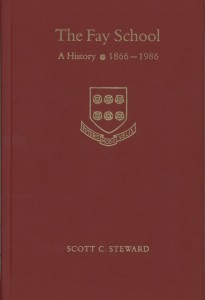 Genealogists can find useful information in a variety of unlikely places. Local histories, with their lists of nineteenth-century aldermen and the minutes of long-ago meetings, can be a valuable resource; so, too, can school and college histories. (NEHGS has a whole floor largely devoted to these two types of books.) My first book was a history of the nation’s oldest elementary boarding school, and as a genealogist – as well as an historian – I made sure to include genealogical information about the school’s founders and its headmasters, teachers, trustees, and students. Continue reading The value of a school history
Genealogists can find useful information in a variety of unlikely places. Local histories, with their lists of nineteenth-century aldermen and the minutes of long-ago meetings, can be a valuable resource; so, too, can school and college histories. (NEHGS has a whole floor largely devoted to these two types of books.) My first book was a history of the nation’s oldest elementary boarding school, and as a genealogist – as well as an historian – I made sure to include genealogical information about the school’s founders and its headmasters, teachers, trustees, and students. Continue reading The value of a school history
Category Archives: Research Methods
Natural disasters and genealogy

While natural disasters are terrible, and frightening to contemplate, it is important when researching genealogy to be mindful of the sometimes terrifying events through which our ancestors lived. Sometimes it took a terrible event to make a community push their record-keeping to a higher level and record the people who lost their lives or property. The top 10 United States natural disasters are recorded, and they range from 8,000 people dead in the 8 September 1900 hurricane that swept through Galveston, Texas, to 695 dead in the 18 March 1925 tri-state tornado that ripped through Missouri, Illinois, and Indiana. The GenDisasters website breaks down disasters state by state, along with Canada. Continue reading Natural disasters and genealogy
Historic occupations
 While writing my blog focusing on archaic medical terms a few months ago, I began thinking about other aspects of everyday life that appeared in records used by genealogists. One element of an individual’s life which appeared on everything from wills to land deeds to town records was occupation. While some of the occupations listed on records throughout the last four hundred years still exist today (farmers, blacksmiths, and wood workers, to name a few), many of these jobs either are known by a different name or are entirely obsolete in modern society. Continue reading Historic occupations
While writing my blog focusing on archaic medical terms a few months ago, I began thinking about other aspects of everyday life that appeared in records used by genealogists. One element of an individual’s life which appeared on everything from wills to land deeds to town records was occupation. While some of the occupations listed on records throughout the last four hundred years still exist today (farmers, blacksmiths, and wood workers, to name a few), many of these jobs either are known by a different name or are entirely obsolete in modern society. Continue reading Historic occupations
Election Day and your family tree
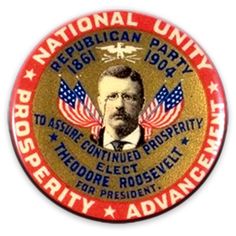 I used to joke that I rarely thought about politics more than twenty-four hours a day. In fact, my pursuit of genealogical research developed alongside my work in opposition and campaign research. Exposed to a variety of Washington, D.C. area archives and repositories, I quickly gathered many records relating to my ancestors from primary sources kept in the same places I consulted in the course of my campaign efforts. Last week, as I researched the nineteenth-century ancestors of our Research Services clients amidst the news of electoral victories and disappointed prospects, I found myself thinking of an interesting source of records that genealogists rarely consult. Continue reading Election Day and your family tree
I used to joke that I rarely thought about politics more than twenty-four hours a day. In fact, my pursuit of genealogical research developed alongside my work in opposition and campaign research. Exposed to a variety of Washington, D.C. area archives and repositories, I quickly gathered many records relating to my ancestors from primary sources kept in the same places I consulted in the course of my campaign efforts. Last week, as I researched the nineteenth-century ancestors of our Research Services clients amidst the news of electoral victories and disappointed prospects, I found myself thinking of an interesting source of records that genealogists rarely consult. Continue reading Election Day and your family tree
Thank you for your service
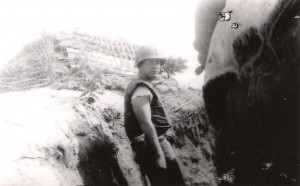
Every November 10th my sister and I call my father to say Happy Birthday. Sometimes my mother buys a small cake to mark the occasion. However, November 10th is not my father’s actual birthday. It is the “birthday” of the United States Marine Corps, which was formed on 10 November 1775 in Philadelphia, Pennsylvania. My father served as a U.S. Marine during the Korean War, and he always appreciates it when we acknowledge this date. Growing up, I didn’t know much about my father’s military service. When I first began researching my family history, I spent a lot of time looking for information on the more distant generations of my family. However, I began to realize that I needed to take the time to learn more about the lives of my parents. One area I wanted to focus on was my father’s service during the Korean War. Continue reading Thank you for your service
Putting your best foot forward
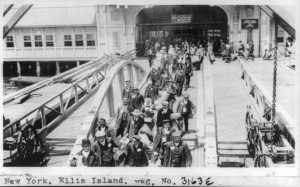
It is difficult to imagine leaving everything you have ever known behind. Yet millions of our ancestors did just that in search of a better life for themselves and their families. Many were stricken by poverty, famine, and disease, and were forced to leave their homelands behind in search of better opportunities. Already in dire circumstances, they endured long journeys and were faced with many challenges upon their arrival.
To assist these immigrants, many benevolent and aid societies were created. They offered resources to the newly arrived, and helped many establish themselves in the United States. Continue reading Putting your best foot forward
Tips for using the Social Security Death Index

The Social Security Death Index (SSDI) is a widely used collection for modern genealogical research. It is composed of information provided by the Social Security Administration (SSA) for those individuals (with Social Security numbers) who died between 1962* and the present. The SSDI often provides the following information about a deceased individual: Continue reading Tips for using the Social Security Death Index
Dead Men (and Women) Tell a Tale
 When I was in elementary school, my class went on a field trip to the Old Village Cemetery in Dedham, Massachusetts, my hometown. I remember running around trying to complete tasks, such as finding the earliest death date and the oldest age listed on a headstone, as well as doing several grave rubbings. Though I’m sure there was a history lesson embedded somewhere in the chaos of twenty nine-year-olds running amok in a cemetery, I have long since forgotten it. What has stayed with me, however, is a love for older cemeteries. Continue reading Dead Men (and Women) Tell a Tale
When I was in elementary school, my class went on a field trip to the Old Village Cemetery in Dedham, Massachusetts, my hometown. I remember running around trying to complete tasks, such as finding the earliest death date and the oldest age listed on a headstone, as well as doing several grave rubbings. Though I’m sure there was a history lesson embedded somewhere in the chaos of twenty nine-year-olds running amok in a cemetery, I have long since forgotten it. What has stayed with me, however, is a love for older cemeteries. Continue reading Dead Men (and Women) Tell a Tale
Tackling Hingham vital records
 Having lived in Hingham the majority of my life, and with ancestors who lived there three centuries ago, I ought to have a good grasp of the Hingham records – but not so much. The problem begins with the fact that the Hingham vital records have not been published. For 121 years researchers of Hingham families have relied on George Lincoln’s 1893 History of the Town of Hingham, Massachusetts, as the “go to” source. Because his two-volume section on genealogies is impressive and the vital records are not in print, Lincoln’s work functions as a substitute “vital records.” I used to receive town certificates that referred to the book and page of Lincoln’s History as their source – I should note that I do not know whether that practice is still in use; I hope not. Continue reading Tackling Hingham vital records
Having lived in Hingham the majority of my life, and with ancestors who lived there three centuries ago, I ought to have a good grasp of the Hingham records – but not so much. The problem begins with the fact that the Hingham vital records have not been published. For 121 years researchers of Hingham families have relied on George Lincoln’s 1893 History of the Town of Hingham, Massachusetts, as the “go to” source. Because his two-volume section on genealogies is impressive and the vital records are not in print, Lincoln’s work functions as a substitute “vital records.” I used to receive town certificates that referred to the book and page of Lincoln’s History as their source – I should note that I do not know whether that practice is still in use; I hope not. Continue reading Tackling Hingham vital records
Family Ghosts
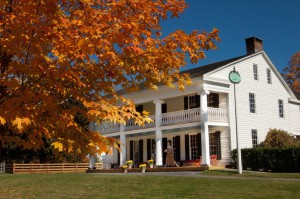
October is a magical month when the leaves turn brilliant colors and start decorating the ground as the nights get cooler and darker. No wonder it is a time filled with hearty food, hot cider, and spooky stories told around a fire. Perhaps one reason why people embrace the autumn so readily is the connection to family the season inspires. Throughout the years many fall activities have led me to new discoveries about my ancestors and the ways I can connect with them, particularly at historic places. Continue reading Family Ghosts